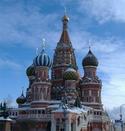Moscow is bursting at the seams. The core city covers more than 420 square miles (1,090 kilometers), and has a population of approximately 11.5 million people. With 27,300 residents per square mile (10,500 per square kilometer), Moscow is one percent more dense than the city of New York, though Moscow covers 30 percent more land. The 23 ward area of Tokyo (see Note) is at least a third more dense, though Moscow's land area is at least half again as large as Tokyo. read more »
Unintended Consequences of the Neo-Traditional City Planning Model
Since the early 20th century, the almost universal adoption of the automobile by US residents has had a profound impact on how we plan and design communities. The widespread use of the auto not only spurred development outside of traditional urban centers, it minimized the need to blend multiple land uses into compact areas. read more »
Orléans, Ontario: A Franco-Ontarian Suburb
In a mere forty years Orléans has gone from an overwhelmingly French-speaking village to a suburb of Ottawa where scarcely one-third of the population has French as its mother tongue. Nonetheless, the French presence remains vibrant and local francophones are exceptionally dedicated to preserving their language and culture and building on their achievements. No other place in Ontario boasts cultural programs and facilities like those that serve Orléans’ francophone community. read more »
- Login to post comments
Local Chambers of Commerce: Not Born for Ourselves Alone
Most people are more interested in organized crime than in organized business. Chambers of commerce do not often attract headlines except for the occasional, inevitable dustup with a public authority. For that reason, this April’s 100 year anniversary of the founding of the U.S. Chamber of Commerce may pass without much public attention. This would be a shame, as groups of companies have left their fingerprints all over the American civic landscape, and were busy even at the birth of Tom Donohue’s organization in 1912. read more »
President Obama Courts Silicon Valley’s New Digital Aristocracy
President Obama’s San Francisco fundraiser with the tech elites today, along with the upcoming IPO for Facebook, marks the emergence of a new, potentially dominant political force well on its way to surpassing Hollywood and even Wall Street as the business bulwark of the Obama Democratic Party. read more »
Arlington and Shenzhen: A Tale of Two Cities
Seven thousand miles separate Arlington, Virginia and Shenzhen, China. Two continents apart, these two cities could not be more different. Yet they are similar, geopolitically and globally. The characteristics of today’s globalization have united and connected cities like Arlington and Shenzhen. read more »
- Login to post comments
Why Downtowns Fail and How They Can Come Back
To many Florida developers in the last decade, downtown condo towers seemed to make a lot of sense. They were sold as the logical locale for active seniors and millennials, great affordable starter homes, and best of all, investments. Reinvigorating downtowns became fashionable currency in many of Florida’s second and third tier cities. read more »
Special Report: Census 2011: Urban Dispersion in Canada
Canada now has fastest-growing population in the G-8 (Note 1), according to the results of the 2011 census, released last week. Canada's growth rate from 2006 to 2011 exceeded that of the United States by nearly one-third and is nearly one half greater than just a decade ago. The population rose from 31.6 million in 2006 to 33.5 million in 2011. read more »
The Geography of Investment Grade Wines
The world produces more than eight billion gallons of wine each year (including those Algerian reds that taste like lighter fluid). All fifty American states, including Alaska, have thriving local wine industries. The eastern end of Long Island now looks like the Médoc, and one reason that the European Union is suffering its debt hangover is because of the huge subsidies that are paid each year to growers who produce wines that no one wants to drink. But perhaps the biggest success of the industry has been to ferment demand for an oversupply of these barrels. read more »
Sex, Singles And The Presidency
By all accounts both President Barack Obama and his likely challenger, former Massachusetts Gov. Mitt Romney, are ideal family men, devoted to their spouses and their children. But support for the two men could not be more different in terms of the electorate’s marriage and family status. read more »






















